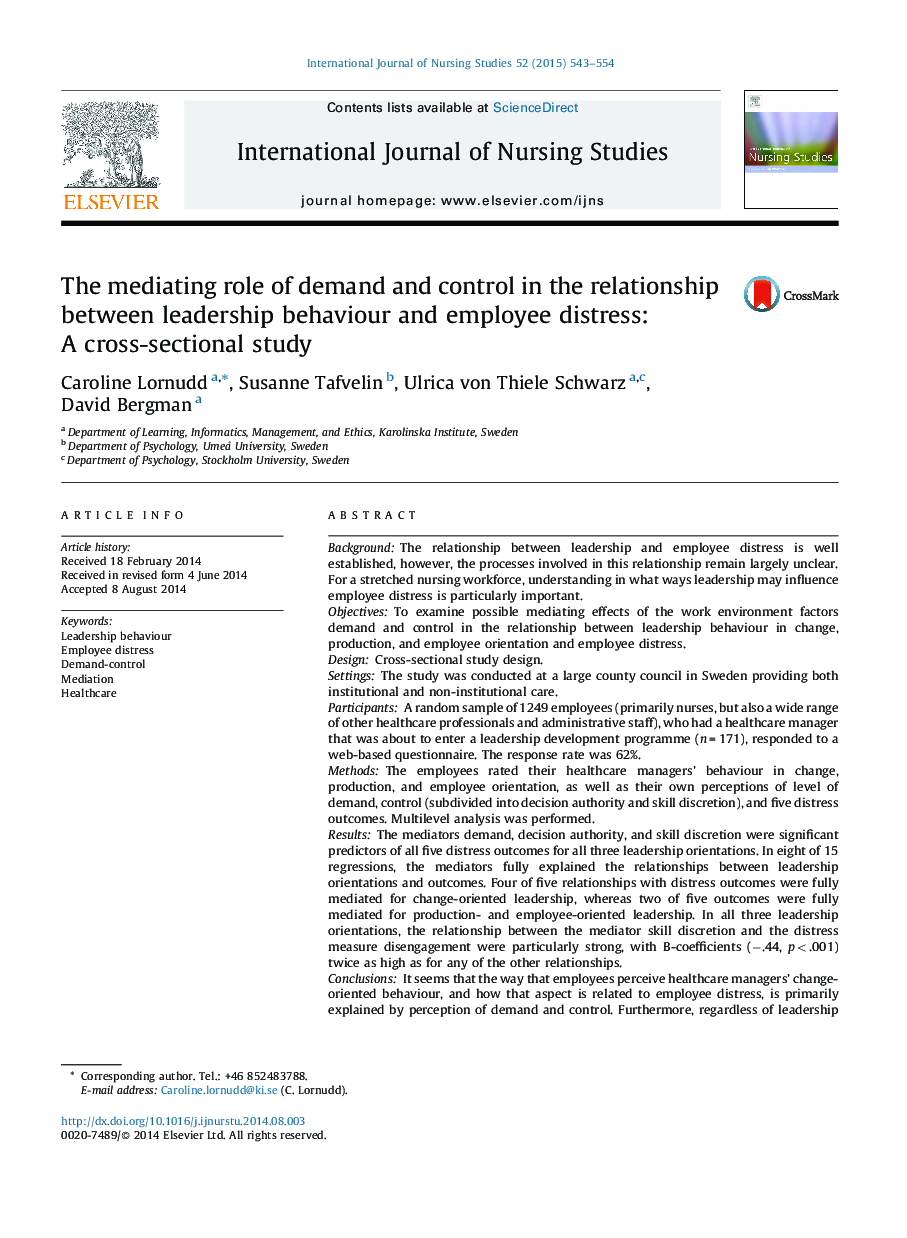| کد مقاله | کد نشریه | سال انتشار | مقاله انگلیسی | نسخه تمام متن |
|---|---|---|---|---|
| 1076329 | 1486527 | 2015 | 12 صفحه PDF | دانلود رایگان |
BackgroundThe relationship between leadership and employee distress is well established, however, the processes involved in this relationship remain largely unclear. For a stretched nursing workforce, understanding in what ways leadership may influence employee distress is particularly important.ObjectivesTo examine possible mediating effects of the work environment factors demand and control in the relationship between leadership behaviour in change, production, and employee orientation and employee distress.DesignCross-sectional study design.SettingsThe study was conducted at a large county council in Sweden providing both institutional and non-institutional care.ParticipantsA random sample of 1249 employees (primarily nurses, but also a wide range of other healthcare professionals and administrative staff), who had a healthcare manager that was about to enter a leadership development programme (n = 171), responded to a web-based questionnaire. The response rate was 62%.MethodsThe employees rated their healthcare managers’ behaviour in change, production, and employee orientation, as well as their own perceptions of level of demand, control (subdivided into decision authority and skill discretion), and five distress outcomes. Multilevel analysis was performed.ResultsThe mediators demand, decision authority, and skill discretion were significant predictors of all five distress outcomes for all three leadership orientations. In eight of 15 regressions, the mediators fully explained the relationships between leadership orientations and outcomes. Four of five relationships with distress outcomes were fully mediated for change-oriented leadership, whereas two of five outcomes were fully mediated for production- and employee-oriented leadership. In all three leadership orientations, the relationship between the mediator skill discretion and the distress measure disengagement were particularly strong, with B-coefficients (−.44, p < .001) twice as high as for any of the other relationships.ConclusionsIt seems that the way that employees perceive healthcare managers’ change-oriented behaviour, and how that aspect is related to employee distress, is primarily explained by perception of demand and control. Furthermore, regardless of leadership behaviour orientation, how employees perceive their opportunity to use specific job skills plays an important role in the interplay between perception of healthcare managers’ behaviour and disengagement.
Journal: International Journal of Nursing Studies - Volume 52, Issue 2, February 2015, Pages 543–554
